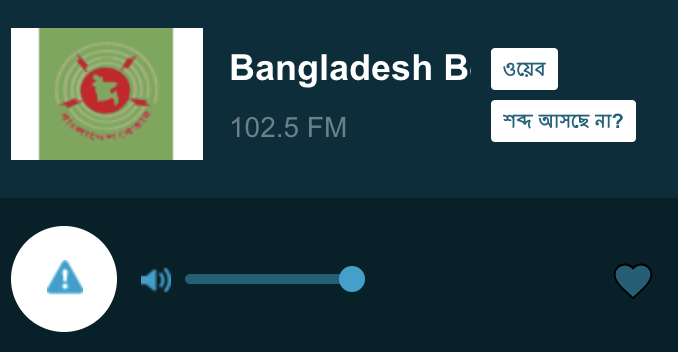
As the unrest in Bangladesh continues with violent protests which saw the state broadcaster Bangladesh TV being burnt down last week, public radio Bangladesh Betar’s website is still silent.
The government cracked down heavily on students who were protesting quotas reserving 30% of government jobs for veterans who fought in the 1971 independence war and their children.
The internet and all forms of telecommunications were shut down last week and there was a complete information blackout.
While the Bangladesh Betar building was safe, the internet shutdown took down their stream and it continues to be offline at the time of the publishing of this story.
A staff member told radioinfo: “There were no internet connection in the country since 8:30PM local time on Thursday. Apparently there were clashes between students and law enforcement agencies, but things spiralled out of control as vested quarters got involved and there were fire and robberies across various government offices.”
“Then the country went into curfew from 12 midnight on Friday and is still ongoing. But during daytime for 4-5 hours curfew gets relaxed and people can go out.”
“Our offices resumed from today. Bangladesh Television are a separate entity under Ministry of Information and Broadcasting and have their own station separated from Betar. On Wednesday, some miscreants went into BTV station in Dhaka and did a lot of damage to some offices. They set fire on some places inside. Damages are still being assessed.”
The country’s Information and Broadcasting Minister has also visited the site.
Meanwhile the UN Human Rights Chief Volker Türk has asked the government to disclose full details about last week’s crackdown amid growing accounts of horrific violence, and to ensure all law enforcement operations abide by international human rights norms and standards. He also called on the government to restore full internet access to allow all people, including journalists and media outlets, to communicate freely and in line with international law.
This story first appeared on RadioInfo.asia
